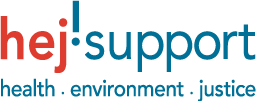
Results and analysis of SAICM VWGs
EECCAStrategic Approach to International Chemicals Management (SAICM) was signed in 2006 at the first session of the International Conference on Chemicals Management (ICCM). The Conference adopted the Dubai Declaration on International Chemicals Management and the Overarching Policy Strategy. The Conference also recommended the use and further development of the Global Plan of Action as a working tool and a guidance document. Together these three documents constitute SAICM.
By signing SAICM, more than 100 governments committed to minimizing harm to human health and the environment from manufacturing and using chemicals by 2020.
SAICM is a unique global strategy focused on creating a world where chemicals are no longer produced or used in ways that harm human health and the environment.
Nevertheless, the SAICM mandate expired in 2020. What is next? In 2013, 7 years before SAICM expiratory data, the African Region noted that “the challenges of sound chemicals management will continue beyond 2020 as new chemicals are added to the market, and new emerging policy issues are identified.”
That was confirmed in the second edition of the Global Chemical Outlook II, which states that:
• SAICM 2020 goal has not been achieved
• Pollution increases and adversely affects both human and non-human life.
It is obvious that SAICM has not achieved its goal and more work has to be done beyond 2020. What should the new instrument, a new framework, include? Some ideas were supposed to be addressed during the intersessional process. This process was intended to develop recommendations regarding the Strategic Approach and the sound management of chemicals and waste beyond 2020.
Three meetings of the Intersessional process (IP) were successfully conducted. However, The COVID19 pandemic slowed the process substantially by putting the fourth meeting (IP4) and the fifth session of the International Conference on Chemical Management (ICCM5) on hold. However, a decision was made to continue working virtually, and four VWGs were set up to discuss the most important parts of the future instruments.
The work of the Groups was linked to the Compilation of recommendations document prepared for IP4. The discussion held by the VWGs was not intended to substitute face-to-face negotiations at IP4 or ICCM5 but rather was initiated to brainstorm on the key technical issues and prepare delegates for these critical events.
HEJSupport’s new report “Results and analysis of SAICM VWGs” summarizes the outcomes of the SAICM Virtual Working Group discussion and is available in English and Russian.
To inform country delegates and the NGO community about SAICM developments, HEJSupport, the Swedish Society for Nature Conservation (SSNC), groundWork South Africa (gW), and the European Environmental Bureau (EEB) held a webinar on the virtual working group outcomes. Positions developed jointly in these matters by “A group of NGOs” were also discussed.
The recording of the webinar includes presentations from HEJSupport and The Centre for International Environmental Law (CIEL) describing the key outcomes of all four VWGs.



